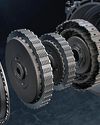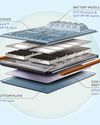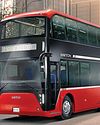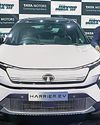
You have seen the evolution of the Indian auto industry. Tell us how it all began?
The story starts in 1947 when I was asked to appear in Delhi for a meeting with the Defence Minister. There were a few of us in that meeting and he took us into confidence and said that we were having immense problems getting spare parts for our tanks. The British and others were all playing games and that we could not continue importing parts, so we had to do something about it. He said that the government had taken some tough decisions and had decided to develop its own automotive industry for our needs. Then he asked us, “What do you gentlemen think?” I said, “We don’t know a damn thing about the auto industry”! I asked the chap sitting next to me, Colonel Menon, who became one of the policy-makers, “Do you know anything about the industry?” And he too said, “Not a thing!” So that’s how it all started.
There were few automotive companies at that time.
At that time, among the Indian companies, there was Premier Automobiles Ltd (PAL), Hindustan Motors (HM), and ourselves (M&M). However, we had hardly got into anything. Ford and GM were assemblers and after the Indian government’s decision to get into full-fledged manufacturing, they walked out. They said that they didn’t believe India should get into vehicle manufacturing and should only manufacture spare parts. But that was not the government’s intent. Anyway, that started the whole cycle and the process of collaboration began.
You were expected to manufacture everything in-house to be self-reliant.
What was that like?
Denne historien er fra 15th August 2022-utgaven av Autocar Professional.
Start din 7-dagers gratis prøveperiode på Magzter GOLD for å få tilgang til tusenvis av utvalgte premiumhistorier og 9000+ magasiner og aviser.
Allerede abonnent ? Logg på
Denne historien er fra 15th August 2022-utgaven av Autocar Professional.
Start din 7-dagers gratis prøveperiode på Magzter GOLD for å få tilgang til tusenvis av utvalgte premiumhistorier og 9000+ magasiner og aviser.
Allerede abonnent? Logg på

Spain's Fersa Group invests in India-based Delux Bearings
Besides theRs100 croreinvestment, the Indian company gets access toadvanced technologies and bearings with arange of applications that willhelpinits global growth strategy, writes Manobhava Baruah.

Tata Autocomp to open compact dual-clutch transmission plant
Amidthe country’s growing need for personal mobility with easy manoeuvrability, comes the demand for vehicles with automatic transmission. Tata AutoCompisready tomovein writes Shruti Mishra.

Pankaj Munjal-backed Hero Motors raises equity from GEF Cap
The company willinvest Rs1,500 crore over thenextthree years andit expects 60 percent ofits turnover to come fromelectric vehicle parts. Itaims to becomea Global EV Solutions Company from India

New age thermoplastics for next-generation EV batteries
Saudi-based global materials major SABIChas developed cutting edgein fire-resistant polymers and flame-retardant materials that comply with various EV battery safety standards across the world.

Switch Mobility to meet growing e-bus demand with fresh capex
Oncourse for abillion-dollar business, the company is exploringa possibility of operating satellite factories across the country to serve different geographies, write ShahkarAbidi and Ketan Thakkar.

Kia India to invest Rs 2,000 crore in EVS, to introduce new e-RV in 2025
New investmentto drive R&D, infrastructure development and manufacturing capabilities. The company willlocally produce EVsin India with possibility of exports as well, writes Mayank Dhingra.

"The government has given enough time for indigenisation but the industry has not taken it seriously"
Amitabh Saran, Founder and CEO, Altigreen, shares his views on problems inthe EV industry and battery localisation solutions with Amit Vijay M.

TATA MOTORS SEES ONE INTWO CARS SOLDAS EVS BY 2030
The company aims to offer wider choices withnew EVs that may straddle a pricebracket of Rs20to 40lakhinthe coming years, writes Ketan Thakkar.

MG Motor India in expansion drive, to invest $100 million
The investment willbe usedtoramp up existing production capacity from1.2to1.4-15lakh units per annum atthe automaker's Halol plantin Gujarat, writes Ketan Thakkar.

"Technology and its multiplier effect are driving business transformations and customer experiences"
Technical Centre India is one of Continental’s largest research and development centres in the world, andasa Centre of Competence’ it also develops customised products for the BRIC countries.